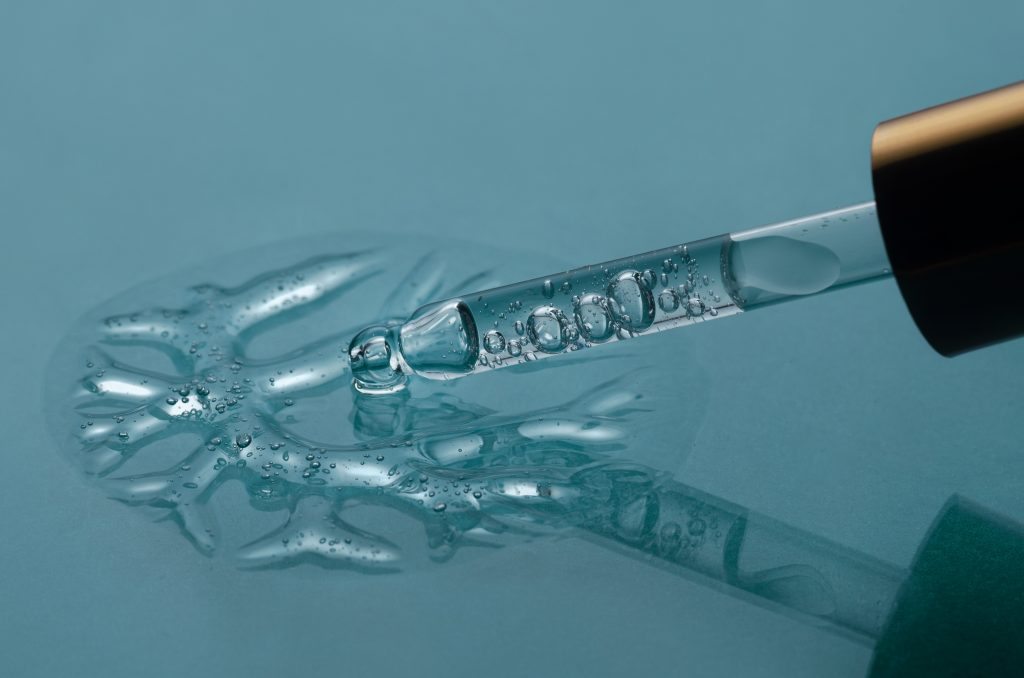Coffee and weight loss are two words that have sparked countless conversations, viral TikTok videos, and trendy diet plans.
You’ve probably heard about the coffee loophole making rounds on social media, promising effortless weight loss and metabolic miracles.
But is it really real or just another clever marketing tactic?
You must’ve been tired of seeing miracle cures or overnight transformations. Or you might be thinking that it’s just something that you can’t pull off.
But the thing to ask is whether this so-called loophole lives up to the hype?
The coffee loophole has become one of the most searched weight loss terms online, with millions desperately seeking that one trick that will finally help them shed unwanted pounds.
But the relationship between coffee and weight loss is not just a matter of a few seconds of reel, but goes beyond that.
So let’s bust out this myth today and find what the right amount and usage of coffee could do in weight loss.
What is the Coffee Loophole?
The coffee loophole refers to a weight loss strategy that works around drinking coffee with a special recipe and ideal timings.
It’s not like your regular morning pick-me-up dose, but a calculated approach to boosting metabolism and burning fat throughout the day.
This idea gained traction through social media influencers who repackaged existing coffee-based diet strategies with catchier names and bolder promises.
The term has become an umbrella for several different approaches:
-
- The Coffee Loophole Diet: A structured coffee plan that incorporates strategic coffee consumption throughout the day. It includes adding specific herbs to the coffee while drinking it within the ideal timings.
-
- 7-second coffee trick: It focuses on the timing of your coffee intake to maximize fat burning, suggesting that when you drink coffee within the 7 seconds of feeling hungry, it makes you feel full while letting you have lessen cravings.
-
- The Coffee Loophole Recipe: It’s like adding specific ingredients to coffee for enhanced effects, to turn it into a weight-loss magic drink.
What is the Coffee Loophole Recipe?
| Ingredient | Typical Amount | Purpose/Claimed Benefit | Scientific Notes |
| Black Coffee | 1 cup | Metabolism booster, appetite suppression | Contains caffeine, which can increase metabolic rate by 3–11% and may reduce appetite in some people. |
| Lemon Juice | 1 teaspoon | Digestion aid, vitamin C source | No direct evidence for weight loss, but vitamin C supports immune function and digestion. |
| Cinnamon | 1/4 teaspoon | Blood sugar regulation, anti-inflammatory | Some studies suggest cinnamon may help stabilize blood sugar, but the effects are modest. |
| Honey (optional) | 1 teaspoon | Natural sweetener, energy, and satiety | Adds calories; may help with satiety, but should be used sparingly in weight loss diets. |
| Cayenne Pepper (optional) | Pinch | Thermogenic effect, metabolism booster | Capsaicin in cayenne may slightly increase calorie burning, but the effects are usually small. |
| Turmeric/Ginger (optional) | Pinch | Anti-inflammatory, digestive support | Both have anti-inflammatory properties; limited direct evidence for weight loss |
But these claims, while tempting, raise a number of red flags. Can something as simple as tweaking your coffee routine really result in sustainable fat loss?
To find out, we need to separate speculation from proven physiology, starting with what science actually says about caffeine, metabolism, and appetite.
The Science Behind Coffee and Weight Loss
You must have noticed individuals incorporating coffee into their daily lives, as it is not only a beverage but a real energy booster.
However, during weight loss, caffeine raises your resting metabolic rate by 3-11%, depending on personal considerations such as body weight and tolerance for caffeine.
This implies that your body spends more calories even when resting.
But let’s put this into perspective.
For someone with a daily 2000-calorie burn, a 10% increase in burn means burning an additional 200 calories per day.
That’s the same as a 20-minute walk. Is it useful? Sure, in a limited way.
Coffee has chlorogenic acid, a chemical that can slow down carbohydrate digestion and increase fat burning.
If you consume coffee prior to a workout, your body becomes better at using stored fat as energy.
It works by disassembling the fat molecules into free fatty acids.
Caffeine amplifies this through the stimulation of epinephrine, which instructs fat cells to release stored energy.
The Coffee Loophole Diet: Fact or Fiction?
Proponents make extraordinary promises: dramatic appetite suppression lasting most of the day, significant calorie reduction without hunger, enhanced energy and fat burning during rest, and a quick coffee trick to lose weight.
These claims often include testimonials of 10-30 pounds lost in weeks.
Let’s examine what research actually supports versus marketing hype:
What’s backed by research
Modest appetite reduction: Coffee intake 0.5 to 4 hours before a meal temporarily reduces appetite for a few hours, primarily due to caffeine’s effect on hunger hormones.
However, this effect diminishes with regular use and isn’t strong enough to replace proper nutrition.
Metabolic boost: Caffeine, along with elements like Theobromine, Theophylline, and Chlorogenic acid, helps boost metabolism by increasing activity rate by about 11-12%.
Exercise enhancement: Coffee before workouts may improve fat burning and performance, allowing longer or more intense exercise sessions, which indirectly supports weight management.
What’s mostly hype
Rapid weight loss: Claims of losing 10+ pounds weekly aren’t supported by research and are physiologically impossible through fat loss alone. Initial weight loss is primarily water weight.
Effortless weight loss: The idea that coffee replaces proper diet and exercise contradicts everything we know about energy balance and sustainable weight management.
Permanent metabolic changes: Promises of permanently resetting metabolism through coffee aren’t supported by evidence.
Health Considerations Related with Coffee
The face of reality is that coffee can be part of a healthy lifestyle. Research links regular consumption to reduced risk of type 2 diabetes, Parkinson’s disease, liver disease, and certain cancers.
Even coffee is one of the richest antioxidant sources in Western diets.
However, moderation matters.
Too much caffeine causes jitters, anxiety, rapid heartbeat, digestive issues, and sleep problems that can interfere with weight loss by increasing stress hormones.
Safe Caffeine Guidelines
Most healthy adults can safely consume up to 400mg daily, even roughly 4 cups of coffee.
A typical cup contains 80-100mg, though this varies by brewing method and coffee type.
Then, what are the signs of excessive consumption?
-
- Sleep disruption even when consumed early
-
- Increased anxiety or jittery feelings
-
- Rapid heartbeat, headaches, or nausea
-
- Needing increasingly larger amounts for the same effects
-
- Digestive issues, especially for people who’re new to it
What is the Coffee Method for Weight Loss?
When you drink coffee matters for optimal results:
Morning strategy: There are significant black coffee benefits that aren’t hard to reach. For example, drink it 30-60 minutes before breakfast to maximize metabolic boost during active hours when you’re most likely burning calories through daily activities.
Pre-workout timing: Consume coffee 30-45 minutes before exercise to enhance fat burning. This allows caffeine to peak right when you start exercising.
Evening avoidance: Stop consuming caffeine at least 6 hours before bedtime to prevent sleep interference, which can disrupt hunger-regulating hormones.
Simply put:
-
- The calories in coffee are minimal when consumed black, so it’s best for people looking for weight loss
-
- Don’t replace balanced meals that provide essential nutrients
-
- Continue drinking water with coffee to balance hydration
-
- Pay attention to how caffeine affects sleep, anxiety, and digestion
Sustainable Weight Loss Reality: What Works Best
There’s no magic loophole for sustainable weight loss. Coffee can provide modest support, but cannot replace fundamental principles:
Here are some of the best practices you should hop on:
Moderate calorie deficit: Through eating slightly less and moving more consistently over time, not extreme restriction but sustainable changes that add up over months.
Quality sleep: 7-9 hours nightly maintains proper hormone balance, particularly leptin and ghrelin, which regulate hunger. Poor sleep undermines even excellent diet and exercise efforts.
Stress management: Chronic stress increases cortisol, promoting fat storage and increasing cravings for high-calorie foods.
Consistent activity: Regular movement throughout the day has a bigger impact on long-term weight management than any single food or drink.
Taking other natural metabolism boosters: Coffee isn’t the only option, though none create dramatic changes alone:
-
- Green tea contains EGCG, another compound that modestly boosts metabolism when combined with caffeine
-
- Spicy foods temporarily increase calorie burn through thermogenesis
-
- Protein requires more energy to digest than carbs or fats
-
- Strength training builds muscle that burns more calories at rest
The Bottom Line
Caffeine can support weight loss when used intelligently, but calling it a loophole oversells its capabilities.
The benefits of coffee are immensely surprising yet amazing.
For example, light metabolic boost, temporary appetite reduction, and enhanced fat burning during exercise are a few to name.
But there’s this thing that must not be forgotten: that sustainable weight loss comes from consistent healthy choices over time and not relying on trendy shortcuts.
Coffee can be a helpful tool, providing small metabolic benefits, but it’s just one tool among many for long-term success.
FAQs
Does Coffee Dehydrate You?
No, this is a myth. While caffeine has mild diuretic effects, the water in coffee exceeds any fluid loss. Research shows coffee actually contributes to daily hydration and counts toward your fluid needs.
Is Coffee Good for You?
Yes, but when taken with low-calorie ingredients and with appropriate timings. Studies show regular coffee drinking reduces type 2 diabetes risk by 23%, protects against the risks of Parkinson’s disease, and lowers certain cancer rates.
How Much Caffeine is in a Cup of Coffee?
Regular drip coffee contains 80-100mg per cup, ranging from 30mg (light roasts) to 200mg+ (dark roasts). Espresso has 63mg per shot, instant coffee has 30-90mg, and cold brew often reaches 150-200mg due to longer steeping.
How Many Calories in Coffee?
Black coffee has just 2-5 calories per cup. But once milk is added, it goes up to 10-15 calories, 100 calories in 2 tbsp of cream, and 16 calories per tsp of sugar.











